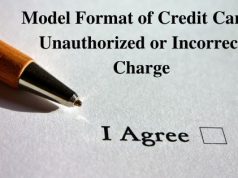WHAT IS A SALE DEED?
ADVANTAGE
- Protects Parties The deed protect the rights of both the buyer and the seller. A specific, well-drafted deed will avoid ambiguity and minimise legal risks.
- Defines the Area For the buyer, a key advantage is having on paper a well-defined description of the property that is being purchased, including the square footage and the location.
- Fill the Information Form
- Provide required Documents.
FAQ
A Sale Deed, also called a “conveyance” which transfers the immovable property, be it land or a house, or any other premise to another person. It is one of the most valuable documents in a purchase or sale of a property. It is governed by the Registration Act is equally important for both the Seller and the Buyer.
• Both the parties agree to prepare a draft sale deed on non-judicial stamp paper. • This value of the sale deed will differ from state to state in the country and as prescribed by the Stamps Act of the respective state. • Once the following details are agreed between the parties, the deed is ready to be signed. • The sale deed would also require to be signed by at least two witnesses along with all their details included.
A Sale Deed contains all the relevant details required to carry out purchase or sale of the property. • Basic details- Full names of the parties, their addresses, details of the property under sale such as its identification number, its exact location, its address, total area of the property etc. • Most importantly the sale deed would require the seller to certify the sale property is free from any encumbrance and without any lien. • If there is any existing loan against the property then the seller should settle the loan first and then execute the sale deed. • Besides, it also include the total amount of consideration to paid, advance amount paid if any, how it is to be paid, the place of payment, the details of the bank transactions of the payments, etc. • The deed would also mention about the receipt issued by the seller to the buyer in lieu of the money received. • It would also mention the exact date on which the seller will hand-over the entire possession of the property to the buyer along with the relevant documents of the property. • It would also mention the indemnity provisions for the buyer and the seller.
• The Sale deed is to be registered at the jurisdictional Sub-Registrar’s office. Apart from the parties, the witnesses should also be present there on the date of registration. • Sometimes, the buyer or the seller could not make their physical presence then in that case the nominated agent empowered with the Power of Attorney is legally allowed to execute the sale deed. • The original documents related to the property should be produced within 4 months from date of execution of the sale deed. If it is not possible, the Registrar may allow a grace period of another 4 months to produce it. However, this delay might attract a maximum penalty of 10 times the registration charges related to the property. • Usually, the buyer pays the Stamp duty and the registration charges and the seller should ensure that all the payments related to the property such as property tax, cess, water and electricity charges, was paid before the execution of the sale deed.
• To register the document and return it to the executant. • He may refuse registration by a speaking order stating reasons for rejection. • He may impound the document to the collector of stamp for realization ofdeficient duty and/or penalty if any.
OUR SERVICES
Company Registration I Trademark I Copyright I Patent I GST I MSME
ISO Certification I Website/App Policy I Legal Documentation
Annual Compliance I Connect Consultant
Visit: Aapka Consultant to get Online Services of CA CS & Lawyers.












